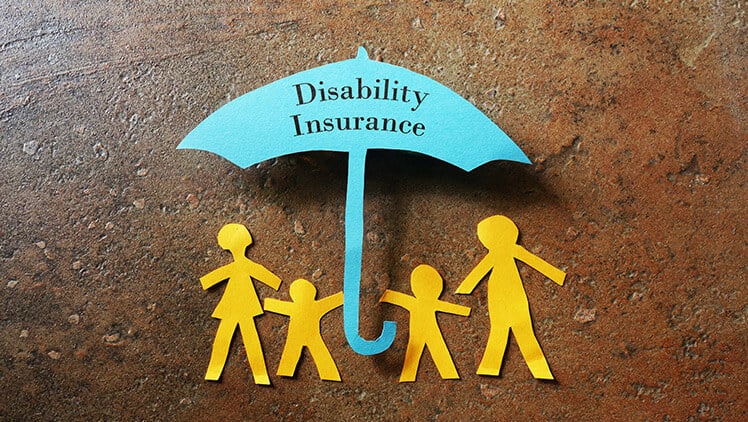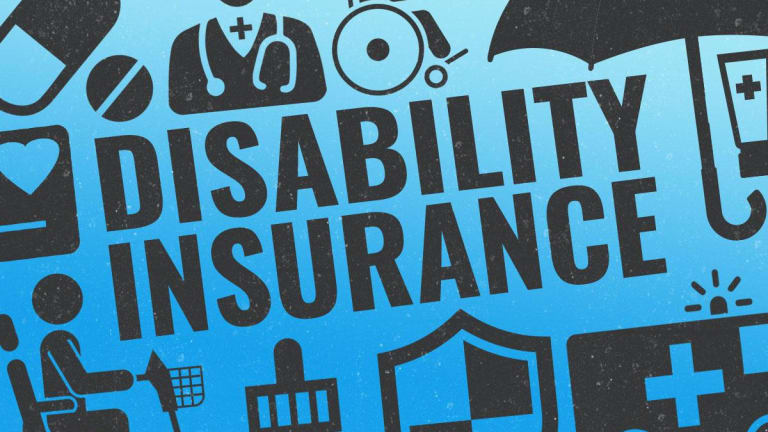According to the Social Security Administration, over a quarter of today’s 20-year-olds will face a disabling injury or illness before they retire. Disability insurance is key to protecting your ability to earn. It ensures your financial needs are met if you get sick or hurt unexpectedly. This way, you can focus on getting better without worrying about money.
Many people don’t see the value in disability insurance because they think they won’t need it. But it’s a big mistake. It’s a must-have for keeping your financial future safe. Don’t overlook it.
Key Takeaways
- Disability insurance protects your most valuable asset – your ability to earn an income.
- It provides financial security in case of an unexpected disability, covering your living expenses.
- Disability insurance is essential for safeguarding your financial future, but is often overlooked.
- Over a quarter of 20-year-olds will experience a disabling injury or illness before retirement age.
- Disability insurance can help you maintain financial stability during a difficult time.
The Importance of Disability Insurance
Disability insurance is a key financial safety net. It helps when you’re hit by unexpected illness or injury. It replaces part of your income if you can’t work, keeping your finances stable and your mind at ease.
Financial Security in Case of Unexpected Disability
Not being able to work because of a disability can be a huge financial blow. It can drain your savings and make it hard to pay for what you need. Disability insurance benefits can keep you living as you’re used to, pay for medical bills, and ease the financial burden of a disability.
Protecting Your Income – Your Most Valuable Asset
Your ability to make money is your most valuable thing. Disability insurance is here to protect it. It’s different from government or employer plans. Income protection policies give you flexible income replacement coverage, keeping your finances stable if you get disabled.
Disability insurance acts as a strong safety net. It offers broad coverage, flexible benefits, and the freedom to take it with you. This ensures your financial well-being is protected, no matter what happens.
“Disability insurance is the ultimate safeguard for your most valuable asset – your ability to earn an income. It’s a financial protection plan that can make all the difference when you need it most.”
Understanding the Risks of Disability

Many people don’t think much about the chance of a long-term disability when planning their finances. But the numbers are quite alarming. The Social Security Administration says more than 1 in 4 of today’s 20-year-olds will face a disability before they turn 67.
Surprising Statistics on the Likelihood of Disability
Most people think long-term disability comes from big accidents. But the truth is, serious illnesses like cancer and heart disease are the top causes. Conditions such as arthritis and back pain also lead to many long-term disabilities. Accidents are actually a small part of the picture.
Common Causes of Long-Term Disabilities
- Serious illnesses (e.g., cancer, heart disease)
- Musculoskeletal disorders (e.g., arthritis, back pain)
- Accidental injuries (a smaller percentage)
It’s clear that unexpected disabilities are much more common than we think. This shows why having disability insurance is crucial. It’s a key part of a solid financial plan to safeguard your main income source.
“Over 1 in 4 of today’s 20-year-olds will become disabled before reaching age 67.”
– Social Security Administration
Disability Insurance
Disability insurance is a financial safety net if you can’t work due to illness or injury. It covers a part of your income, usually 50-80%. This helps you keep up with bills and your lifestyle while you recover.
It’s important to know how disability insurance works to get the right coverage. You can tailor policies to your needs. This includes choosing how long benefits last, how long you wait for them, and how much you get.
Let’s dive into the main parts of disability insurance:
- Income Replacement – This insurance replaces part of your income, usually 50-80%. It helps you pay for living costs if you can’t work due to illness or injury.
- Customizable Coverage – You pick the length of benefits and the wait time before they start. This makes it fit your situation.
- Protection for Your Most Valuable Asset – Your ability to work is often your most valuable asset. Disability insurance protects it if you face an unexpected illness or injury.
Learning about how disability insurance works helps you see if it’s right for you. It ensures you have the right protection for your financial future.
“Disability insurance is a key part of a solid financial plan. It offers a safety net if an illness or injury stops you from working.”
Who Needs Disability Insurance?

Disability insurance is key for people who need a steady income to live and pay bills. It’s especially vital for those who are main earners and for self-employed folks in risky jobs.
Primary Breadwinners and Financial Contributors
If you’re the main income source at home, disability insurance is a must. It protects your income if you get sick or hurt unexpectedly. This keeps your family’s finances safe.
Even if you’re not the only earner but still bring in a good chunk of money, disability insurance for breadwinners is still crucial. It helps keep your family’s lifestyle the same.
Self-Employed and High-Risk Professions
Self-employed folks and those in risky jobs like construction or emergency services are more likely to face a long-term disability. For them, disability insurance for self-employed and high-risk jobs is a lifesaver. It protects their income and future.
| Profession | Disability Risk | Importance of Disability Insurance |
|---|---|---|
| Self-Employed | Higher risk due to lack of employer-sponsored coverage | Provides critical income protection and financial stability |
| Construction Worker | Elevated risk of injury due to physical nature of work | Safeguards income and covers medical expenses |
| Firefighter | Increased likelihood of disability from job-related injuries | Ensures financial security for the individual and their family |
No matter your job or financial status, disability insurance is a smart choice. It guards your ability to earn, which is your most valuable asset. With this coverage, you’ll rest easy knowing your finances are secure, even when life throws surprises.
Limitations of Employer-Sponsored Disability Coverage
Employer-sponsored disability insurance can be a big help, but it often doesn’t cover everything. It’s important to know the limits of these plans. This way, you can make sure you’re protected if you get sick or hurt unexpectedly.
Partial Income Replacement and Taxable Benefits
Employer-sponsored disability insurance often doesn’t fully protect your income. These plans usually cover only a part of your salary, like 60% or less. This might not be enough to keep up your lifestyle if you can’t work. Plus, the benefits you get are taxed, which lowers the amount you receive.
Portability Concerns and Policy Cancellations
Another big issue with group disability insurance is that it’s not easy to take with you. Your coverage is linked to your job, so you could lose it if you switch jobs or start working for yourself. Also, your employer can cancel or change the disability insurance policy anytime, leaving you without protection.
Individual disability insurance, on the other hand, offers better income protection and is tax-free. It’s also portable, so you can keep it even if you change jobs or work for yourself. Knowing the limits of employer plans helps you make smart choices to protect your money if you become disabled unexpectedly.
The Benefits of Individual Disability Insurance

Protecting your financial security is crucial. Disability insurance benefits can be a big help. They offer unique advantages over employer plans. These make them essential for anyone wanting to protect their income and lifestyle.
Higher Income Protection and Tax-Free Benefits
Individual disability insurance stands out for its potential to replace more of your income. Employer plans usually cover less of your salary. But individual policies can cover up to 80% of your income. Plus, the tax-free disability benefits you get can really help if you face a disability unexpectedly.
Customizable Coverage and Portability
One big plus of disability insurance is how you can adjust it to fit your needs. You can pick a policy that matches your life and work situation. And, you can take your disability insurance with you if you change jobs or start your own business. This keeps your income protection steady, no matter your job situation.
By choosing customizable disability insurance, you protect your financial future. You’ll know your main source of income is safe.
Also Read : Why Every Professional Needs Insurance Errors And Omissions Coverage?
Conclusion
Disability insurance is key to a solid financial plan. It protects your income if you get sick or hurt unexpectedly. Knowing how vital it is can help you make smart choices to keep your finances safe.
Keeping your main income safe is very important. Disability insurance can keep your life the same and your money stable while you recover. It gives you peace of mind and security in uncertain times. It’s a smart move if you’re the main earner, work for yourself, or in a job that’s risky.
Even if your job offers disability insurance, it might not cover everything. These plans often replace only part of your income and the benefits might be taxed. That’s why looking into individual disability insurance is a good idea. This option gives you more income protection, tax-free benefits, and the flexibility you need.
FAQs
Q: What is the definition of disability in the context of social security disability?
A: The definition of disability under social security disability is based on the inability to engage in any substantial gainful activity due to a medically determinable physical or mental impairment that is expected to last for at least 12 months or result in death.
Q: How does short-term disability insurance differ from long-term disability insurance?
A: Short-term disability insurance typically provides benefits for a limited period, often up to six months, while long-term disability insurance offers coverage for extended periods, potentially until retirement age, depending on the policy.
Q: What is the waiting period for social security disability insurance (SSDI)?
A: The waiting period for SSDI is five full calendar months after the date your disability began before you can start receiving benefits.
Q: Can I receive both short-term disability and social security disability benefits simultaneously?
A: Yes, you may be eligible to receive both short-term disability insurance benefits and social security disability benefits, but the amount you receive from one may affect the other due to offset provisions in some policies.
Q: How do I apply for social security disability benefits?
A: To apply for social security disability benefits, you can start the application process online through the Social Security Administration (SSA) website, or you can visit your local SSA office for assistance. You will need to provide detailed information about your medical condition and work history.
Q: What are the eligibility requirements for disability insurance benefits?
A: To qualify for disability insurance benefits, you must have a qualifying medical condition, have worked a certain number of years in jobs covered by social security, and meet the SSA’s definition of disability. Additionally, you must have paid into the social security system through payroll taxes.
Q: What types of medical conditions qualify for long-term disability insurance?
A: Long-term disability insurance can cover a wide range of medical conditions, including chronic illnesses, mental health disorders, injuries, and any condition that prevents you from performing your job duties and is expected to last for an extended period.
Q: How can I maximize my disability insurance benefits?
A: To maximize your disability insurance benefits, ensure that you understand the terms of your policy, including the maximum benefit amount and waiting period. Maintain thorough medical documentation of your condition and follow your doctor’s treatment plan to demonstrate your inability to work.
Q: What should I do if my disability claim is denied?
A: If your disability claim is denied, you have the right to appeal the decision. Review the denial letter for specific reasons, gather additional medical evidence if needed, and follow the SSA’s appeal process to contest the decision.
Source Links
- https://www.thrivent.com/insights/disability-insurance/do-you-need-disability-insurance
- https://www.forbes.com/councils/forbesfinancecouncil/2020/05/27/four-reasons-disability-insurance-might-belong-in-your-financial-plan/
- https://www.ameritas.com/insights/why-disability-insurance-is-a-top-financial-product-for-your-clients/





